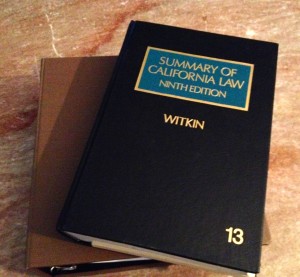“Causation” in Legal Malpractice: Litigation vs. Transactional Issues
The plaintiff in a legal malpractice action generally bears the burden of proving that the lawyer’s professional negligence was the cause of the client’s damages. With some exceptions, the client must prove causation with legally admissible evidence or there plaintiff’s malpractice suit cannot prevail.
The manner in which a client proves causation differs somewhat if the case is based upon alleged malpractice in a litigation matter or upon an attorney’s professional negligence in the transactional arena. Today, we take a brief look at some of the differences between these two scenarios.
CAUSATION IN THE TRANSACTIONAL CONTEXT
Transactional malpractice occurs when a lawyer breaches a legally recognized duty to a client in the context of “transactional practice,” which includes mistakes in contract drafting and business advice, among other practice issues.
The “but for” test in transactional cases is identical to the test in litigation: the plaintiff must show that “but for” the attorney’s professional negligence (breach of a legally recognized duty) the client would, more likely than not, have achieved a more favorable result and/or not suffered the damages which resulted from the alleged malpractice.
In transactional cases, this generally means providing proof, to a reasonable certainty, that but for the attorney’s wrongful conduct, the client would have:
1. Achieved a more favorable contract, deal, settlement, or other financial outcome.
2. Achieved a significantly better economic position (or not have suffered an economic loss).
3. Avoided damage to the client’s business, economic position, or other legal rights.
Note: “I might have gotten better contract terms/more money/a better deal,” without more, is not evidence of causation. Not all bad deals result from legal malpractice. The damages must result from an attorney’s breach of a recognized legal duty, not from an acceptable negotiating strategy or a properly-conducted negotiation. In simpler terms: just because you got “a bad deal,” that doesn’t necessarily mean your lawyer committed malpractice. There are other factors involved in evaluating legal rights. If you believe your attorney may have committed malpractice, always consult an experienced malpractice attorney immediately for an evaluation of your legal rights.
CAUSATION IN LEGAL MALPRACTICE ARISING FROM LITIGATION
Litigation-based malpractice may arise in a number of contexts. Sometimes, a client discovers the attorney’s wrongful conduct after settlement of the client’s case, while other times the malpractice comes to light before (or after) a judgment is entered against the client. (In rare cases, malpractice may also be an issue when the client has won the underlying case, but such situations are rare. Consult a lawyer if you think this situation may apply to you.)
When the alleged malpractice resulted in a judgment against the client (loss of the underlying case in which the alleged malpractice occurred), the client must prove causation by showing that “but for” the attorney’s mistake (or omission): (a) the client would have been able to successfully prosecute or defend the underlying case (e.g., the client would have “won” rather than losing), and (b) the client could have collected any judgment or enforced any order the client would have obtained in the successful suit.
It’s not enough to demonstrate that the client would have won but for the lawyer’s malpractice. The client must also show that (s)he could have collected the judgment (or enforced the order) the court would have granted.
However, proving that a client would have settled for a lower amount (or paid a higher settlement to dismiss a case against him) in the absence of the attorney’s wrongful conduct or advice may be sufficient to prove “but for” causation.
***
Causation, and the proof required to establish it, varies widely with a client’s individual facts, circumstances, legal rights, and representation history. Never use this, or any other article (on the Internet or otherwise) as a substitute for obtaining legal counsel. This article is for information purposes only, and neither this article nor any other information appearing on this website constitutes legal representation or creates an attorney-client relationship between the author and any reader.
















